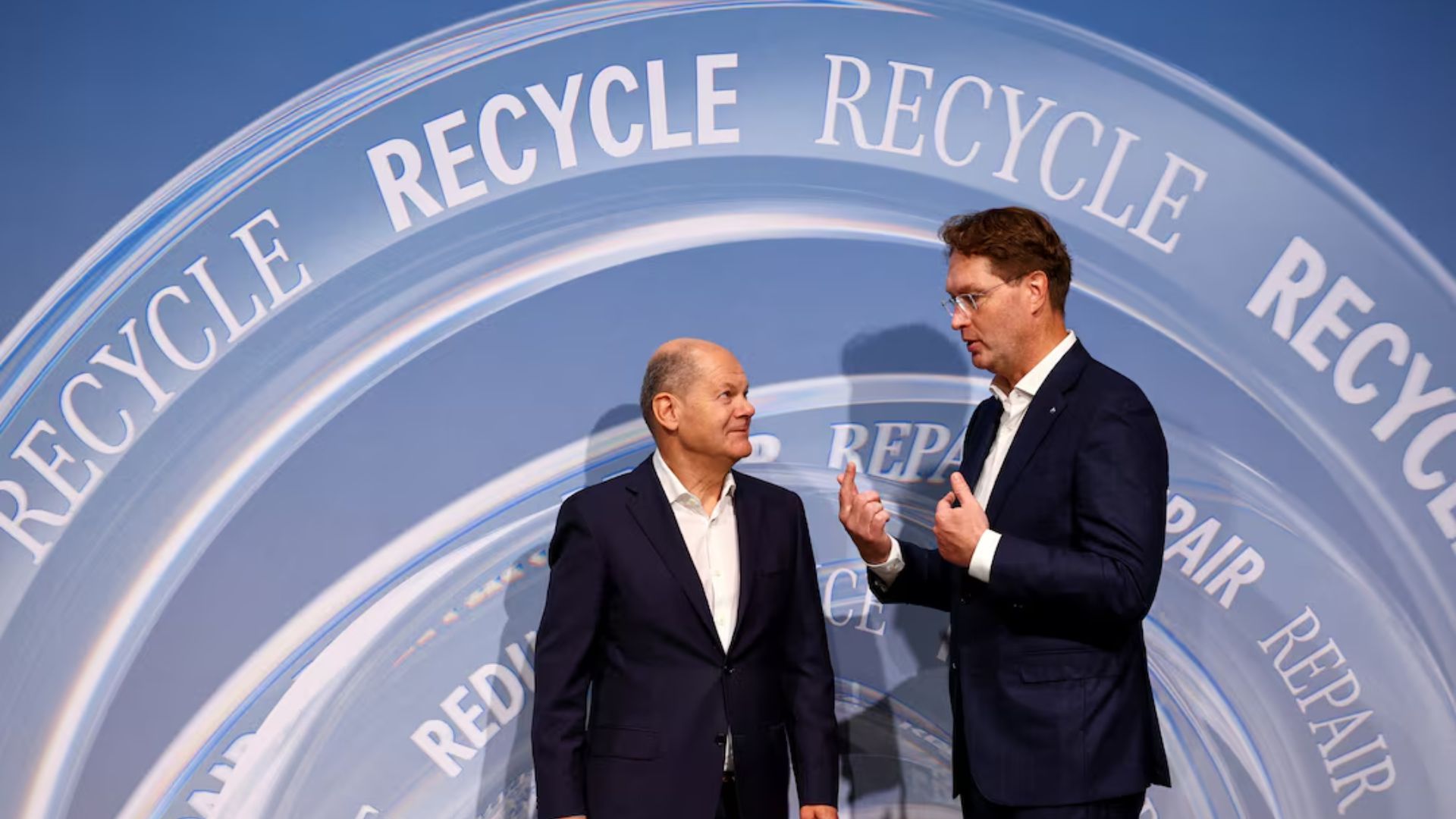KUPPENHEIM, Germany, (Reuters) – German automakers should not be afraid of competition from China, Chancellor Olaf Scholz said on Monday at the opening of Mercedes-Benz’s first battery recycling plant, an investment he described as part of Germany’s new industrial policy agenda.
“Some say that China can do much better with electric motors than us,” Scholz said.
“German companies need not be afraid of this competition,” he said, pointing out that the industry had weathered strong competition from South Korea and Japan in the past and reaffirming Germany’s stance against the European Union’s tariffs on Chinese-made electric vehicles (EVs).
“I’m against tariffs that harm us,” Scholz said at the opening ceremony in Kuppenheim, south-western Germany.
The EU should use such measures where dumping and subsidies actually put European producers at a disadvantage, for example, in the steel industry, he added.
The European car sector is facing multiple challenges, ranging from high production costs and managing the shift to electric vehicles to falling demand and rising competition.
These problems have led some European automakers to reduce capacity, while the region’s top player Volkswagen is considering plant closures in Germany for the first time.
All Mercedes plants are well-utilised, apart from one factory in Germany’s Sindelfingen, where it produces its high-end S-Class model line, said Joerg Burzer, Mercedes’s board member responsible for production.
Mercedes’s third-quarter sales in China, where the group makes about a third of its sales, fell 13%, especially hit by lower luxury demand there due to the real estate crisis, affecting the S-Class in particular.
The EU is imposing hefty tariffs on Chinese-made EVs, saying they benefit from unfair state subsidies. Beijing denies this and has threatened retaliation, while German automakers, which make about a third of their profits in China, have voiced concern and called for more talks.
Germany voted against the tariffs.
Mercedes plans to extract raw materials such as lithium, nickel, and cobalt from old electric car batteries at the carbon-emissions-free factory, to later re-use them.
Reporting by Andrey Sychev and Ilona Wissenbach; Editing by Mark Potter











